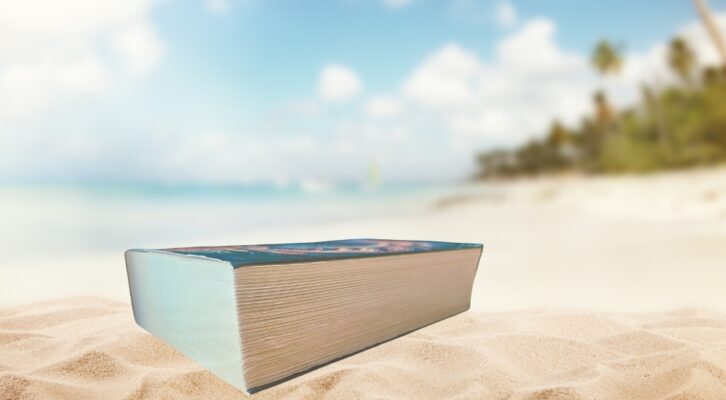__________________________________
WHAT’S WITH ALL THE CRIME THRILLERS COMING OUT OF AUSTRALIA?
__________________________________
So, what’s with all the crime thrillers coming out of Australia? It’s hard to pin it down, but it’s real, it’s here, and it’s growing.
We Aussie writers seem to have achieved some sort of critical mass, and are now attracting various descriptors around the world: ‘Aussie noir’ or ‘bush noir’ or ‘outback noir’ or ‘sunburnt noir’ or ‘red dirt crime’ or ‘Southern Cross crime”. Seriously, those are just some of the ones I’ve seen recently.
It’s exciting to be part of, but what defines it? And are Australian writers riffing off each other and following each other’s leads, or is it all just some strange coincidence?
I’d suggest it’s more coincidence than conspiracy, particularly when it comes to locating crime stories in country towns, or the bush, or the outback.
For example, plenty of people draw comparisons between my book Scrublands and Jane Harper’s massive bestseller The Dry. Both are set in country towns plagued by drought. Yet I was unaware of The Dry while I was writing Scrublands, only learning of it around the time I submitted my manuscript. Initially, I was mortified: I thought publishers would think my book was derivative, a quick knock off, and they wouldn’t be interested in publishing it.
In fact, the opposite was true. Multiple publishers in Australia, and then in the US and the UK, bid for the rights. I quickly realised that instead of fearing comparisons with The Dry, I owed a debt of gratitude to Jane Harper. It seems publishers were on the lookout for the next The Dry.
And here is an essential truth about the surge in Australian crime novels: international publishers are now aware that there is a market for them. They’re actively looking for new Australian crime whereas a few years ago there was little or no interest. Sadly, the situation is Australia wasn’t much different. How that has changed!
Crime is not alone, there is an international appetite for other genres of Australian writing; witness Liane Moriarty’s well-deserved success. And in Australia, some booksellers, including large chains, are reporting that during 2018, seven or eight of their top ten bestsellers across fiction and non-fiction were Australian works. That’s an amazing percentage, given how many great books are being published right around the English-speaking world.
But back to Aussie crime, and the apparent preponderance of books set in country towns, so-called ‘bush noir’.
The rural landscape in Australian crime novels is often harsh and unforgiving. But that’s the reality, and that’s what helps make it such a good setting for crime. The Dry and Scrublands both take place during drought. Yet droughts are a constant part of the Australian climatic cycle; between the mid-1990s and 2010 Australia suffered its most devastating dry period in recorded history. I know—I wrote a non-fiction book about it. I’d suggest having a drought in an Australian crime novel, or a bushfire, is about as remarkable as having snow in Scandi Noir. Even as I write this, Australia is back in drought.
Talking of Scandi Noir, I think maybe us Aussies also owe our Nordic friends a vote of thanks. For Scandi noir confirmed for all time, if that was necessary, that American readers were happy, indeed eager, to read crime books set outside the States.
But that leaves two questions unanswered: Why are so many of the new wave of Australian crime books set in the bush? And why do they appeal to Americans?
Why are so many of the new wave of Australian crime books set in the bush? And why do they appeal to Americans?Again, I think the phenomenon of books set in rural Australia is more coincidence than conspiracy, but it’s intriguing nevertheless. Most Australians live in the large capital cities on the coast, including most of the writers producing rural crime.
Part of the reason could be just the logistics of plotting: often a crime plot works better with a limited and well-defined cast of characters; just look at Agatha Christie. But there are other reasons as well.
Many Australians cherish the bush; it’s part of our national identity. Our frontier heritage helped shape Australia just as the ‘wild west’ shaped America. And yet in recent times life there seems to have become more fragile, more marginal, with a series of droughts, a crisis in the river system, and devastating bushfires. There is an understanding that climate change is real and threatens the traditional life of our farmers. I suspect some of us have picked up on that, either consciously or unconsciously, and realised what a great setting it makes for a crime book.
But then again, I do think coincidence is also large part of it. I seriously don’t think writers here have seen a trend and then deliberately decided to follow it. I say this because so many crime authors who have set stories in the bush, have then set subsequent books in the city. If we were trying to cash in on some sort of trend, we’re not doing a very good job of it!
Jane Harper’s second book, Force of Nature is set in the cold, wet Grampian mountains. Sarah Bailey’s debut The Dark Lake is set in a country town, but she moves her protagonist Constable Gemma Woodcock to inner-city Melbourne for the sequel, Into the Night. Mark Brandi’s award winning book Wimmera is set in the country; his follow up The Rip is as grungy and inner-city as you could get.
And while my next book, the follow up to Scrublands, is again set in a regional town, it’s located on the coast, with a beautiful beach, tourists and prosperity, a long way from drought, bushfires and the economic hardship of the bush.
I’m sure there will be many more Australian crime books set in country towns in the years ahead, but my advice to American readers would be to check out some of those with different locations. They’re just as good.
Which brings us to another question: why do Australian crime books resonate with US readers?
I think for many Americans, Australia is simultaneously familiar and exotic. You see us almost as cousins, with a similar history, culture and language.
There is something in an Australian country town that evokes thoughts of American towns, and in the outback some echo of the wild west.
I have met many Americans who hold an almost nostalgic view of Australia, even those who have never been here; they see it as a more innocent version of the US, like America used to be. They often warn me: “Don’t do this or that, or you will end up like us.”
That romanticized view of Australia may not be strictly accurate, but then again, we are talking fiction here. And in fiction, both the author and the reader are engaging their creativity and imagination. Perhaps a foreign yet familiar setting allows American readers a little more freedom in what they imagine.
__________________________________
SO WHO SHOULD I READ?
__________________________________
For several years there, while I worked away on Scrublands, I wasn’t reading much, as I juggled a full-time job and family responsibilities. Many an aspiring writer would identify with that: sacrificing precious reading time in order to write. But once I’d submitted my manuscript I was free to start exploring this new wave of Australian crime writers. And I can’t begin to tell you how much I’ve enjoyed it.
So what have I discovered and what would I recommend?
__________________________________
THE OLD GUARD
__________________________________
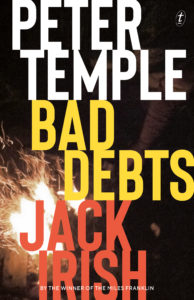
Peter Temple
Before I took my reading sabbatical the two best modern Australian crime writers I’d encountered were Peter Temple and Michael Robotham. Sadly, Peter died in 2018, but his books live on. His Jack Irish books are highly enjoyable, full of nuanced characters, sparse dialogue and dry humor. Originally from South Africa, Peter had a fine ear for Australian speech patterns, the vernacular and the ironic. But it’s his final two books, The Broken Shore and Truth that are the stand outs—Truth won Australia’s most prestigious literary award, a unique achievement in this country for a so-called genre book.
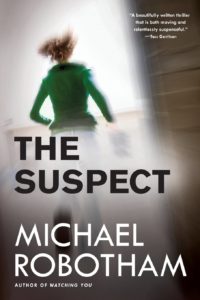
Michael Robotham
It’s a bit cheeky to label Michael Robotham as part of an old guard—we’re about the same age. The difference is that he’s been an internationally-acclaimed author for decades! He will be familiar to many international readers—he’s sold millions of books in something like 50 countries (he’s huge in Germany!). Read the latest in his Joe O’Loughlin series, The Other Wife. If you like it, you can work backwards through the other eight books in the series. It’s crime writing at its best. One warning: although Michael lives in Sydney, his Joe O’Loughlin books are set in Britain.
__________________________________
THE NEW SCHOOL
__________________________________

Sarah Bailey
Sarah’s debut novel Dark Lake is set in a country town, so it’s mainstream Aussie noir. If you liked Scrublands or The Dry, you’ll like Dark Lake. Her protagonist Gemma Woodcock is a policewoman with a troubled past and a problematic personal life, caring for a child while struggling to do her job. Sarha’s follow-up, Into The Night, transfers Gemma to inner-city Melbourne, where she investigates a brazen killing on a film set. Both are published in the United States.
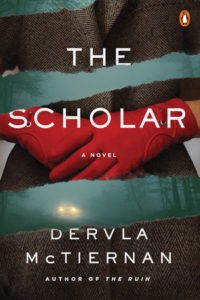
Dervla McTiernan
Dervla is originally from Ireland; she moved to Australia after the Irish economy crashed during the global financial crisis. She now lives in Perth but her books are set in Galway, featuring Cormac Reilly. Her first book, The Ruin, intertwines two crimes, one from the present day and one from decades ago when her protagonist Cormac Reilly was a young constable. It’s a police procedural, yet the writing is beautiful, the characters nuanced, with a strong emotional punch. Her next book, The Scholar, again featuring Corma Reilly and again set in Galway is just as good, if not better, suggesting Dervla will be a successful writer for years to come. Both are published in the US.
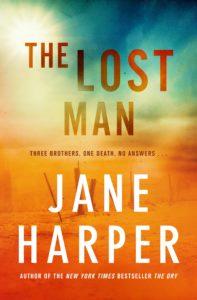
Jane Harper
Jane Harper is the best known internationally of the new Australian crime writers. The Dry and Force of Nature feature policeman Aaron Falk, yet her latest book The Lost Man is a stand alone. It’s already published in Australia and is sweeping the local bestseller lists. Whereas The Dry is set in a country town, and Force of Nature in temperate rainforest, The Lost Man is set in the outback proper. So it’s real ‘Outback Noir’. It’s high on my TBR list; many people say it’s her best yet.
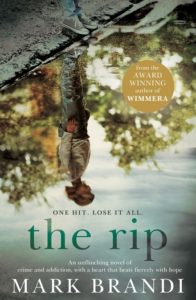
Mark Brandi
Mark Brandi’s Wimmera (Into the River –UK) has won prestigious awards in the UK, so hopefully US publication won’t be far away, especially as his upcoming book The Rip is an immersive and compelling read. Mark’s books aren’t traditional crime books. For starters, they don’t rely on an outside protagonist, like a police officer, a private detective or a journalist to carry the reader through the narrative. Instead we find ourselves engaged with victims trapped in hostile environments. The dramatic tension relies on the reader barracking for those involved and hoping they will survive. In this sense, the structure is less reliant on a ‘who-dunnit’ plot and traditional denouement. They are short books, but remarkably well-written: part-crime, part literary fiction. Highly recommended.

Emma Viskic
Emma Viskic’s Resurrection Bay and And Fire Came Down are multi-award winning books, also available in the US. Gritty, unapologetic and at times violent, their depiction of Australian society pulls no punches. Her hero, Caleb Zelic is brilliant, simultaneously tough and vulnerable, a perpetual outsider due to his deafness, trying to come to terms with his past while working as private investigator.
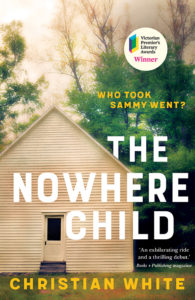
Christian White
Christian White’s debut novel The Nowhere Child was an immediate bestseller when it was released in Australia in mid-2018. It’s published in the US this January. This is a page-turning psychological thriller, set primarily in the US with a few Australian scenes. It has many of the elements of the psychological thrillers that are so popular right now.
The set up is brilliant: a young Australian woman has her life turned upside down when she’s told she is someone else: an American who vanished as a two-year old 26 years ago in Kentucky. Again, this is a book without an outside protagonist. It’s told with great skill, bouncing between points-of-view, keeping the reader guessing right up until the end about what has actually taken place. An absolute page turner.

Candice Fox
Confession time: I’ve yet to read one of Candice’s books, but I feel it would be remiss of me not to mention her. She’s a highly successful and prolific author already well-known to many US readers, through her own work, like Redemption Point and Crimson Lake and her New York Times #1 bestseller collaborations with James Pattterson, like Liar Liar.
So there you have it: a quick overview of Aussie Crime. My advice is to start reading now or, like me, you’ll be finding it difficult to keep up! No matter if you call it Aussie Noir or something else, I’ve got a feeling it’s here to stay.








